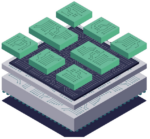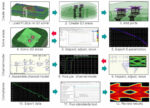You are currently viewing SemiWiki as a guest which gives you limited access to the site. To view blog comments and experience other SemiWiki features you must be a registered member. Registration is fast, simple, and absolutely free so please,
join our community today!
WP_Term Object
(
[term_id] => 159
[name] => Siemens EDA
[slug] => siemens-eda
[term_group] => 0
[term_taxonomy_id] => 159
[taxonomy] => category
[description] =>
[parent] => 157
[count] => 813
[filter] => raw
[cat_ID] => 159
[category_count] => 813
[category_description] =>
[cat_name] => Siemens EDA
[category_nicename] => siemens-eda
[category_parent] => 157
[is_post] =>
)

WP_Term Object
(
[term_id] => 159
[name] => Siemens EDA
[slug] => siemens-eda
[term_group] => 0
[term_taxonomy_id] => 159
[taxonomy] => category
[description] =>
[parent] => 157
[count] => 813
[filter] => raw
[cat_ID] => 159
[category_count] => 813
[category_description] =>
[cat_name] => Siemens EDA
[category_nicename] => siemens-eda
[category_parent] => 157
[is_post] =>
)
Visitors to Siemens’ booth (#2521) at the 61st Design Automation Conference (DAC) will see on display the Veloce™ CS system that unifies hardware emulation, enterprise prototyping and software prototyping into one hardware-assisted verification and validation platform.
The display will feature the three single-blade … Read More
As SoC complexities continue to expand to billions of transistors, the quest for higher levels of design automation also rises. This has led to the adoption of High-Level Synthesis (HLS), using design languages such as C++ and SystemC, which is more productive than traditional RTL design entry methods. In the RTL approach there… Read More
At the recent User2user conference, Amit Kumar, Principal Hardware Engineer, Microsoft, shared the company’s experience from building a 3DIC SoC and highlighted Siemens EDA tools that were used. The following is a synthesis of core aspects of that talk.
3DIC Challenges
Despite the numerous advantages of 3DIC technology, its… Read More
PCB designers have been using manual routing for decades now, so when is it time to consider adding interactive routing technologies to become more productive? Manually routing traces to connect components will take time from a skilled team member and involves human judgement that will introduce errors. When a design change … Read More
In the fast-paced world of electronic design automation (EDA) software development, maintaining high code quality while adhering to tight deadlines is a significant challenge. Code coverage, an essential metric in software testing, measures the extent to which a software’s source code is executed in tests. High code… Read More
AI and ML techniques are popular topics, yet there are considerable challenges to those that want to design and build an AI accelerator for inferencing, as you need a team that understands how to model a neural network in a language like Python, turn that model into RTL, then verify that your RTL matches Python. Researchers from CERN,… Read More
Most of us are familiar with the metastability problems that can be caused by clock domain crossings (CDC). Early static analysis techniques can flag these kinds of issues to ensure there are no surprises later. I spent quite a bit of time at Atrenta, the SpyGlass company, so I am very familiar with these challenges. Due to the demands… Read More
2.5D and 3D ICs present special challenges since these designs contain multiple chiplets of different materials integrated in all three dimensions. This complexity demands full assembly verification of the entire stack, considering all the subtle electrical and physical interactions of the complete system. Identifying… Read More
From Zion Research I learned that the flexible electronics market was about $13.2B in 2021 and growing at a CAGR of 21%, so that was impressive. There are several factors that make rigid-flex circuit so attractive, like: space efficiency, reduced weight, enhanced reliability, improved signal integrity, streamlined assembly,… Read More
PCB designers can perform pre-route simulations, follow layout and routing rules, hope for the best from their prototype fab, and yet design errors cause respins which delays the project schedule. Just because post-route analysis is time consuming doesn’t mean that it should be avoided. Serial links are found in many PCB designs,… Read More










